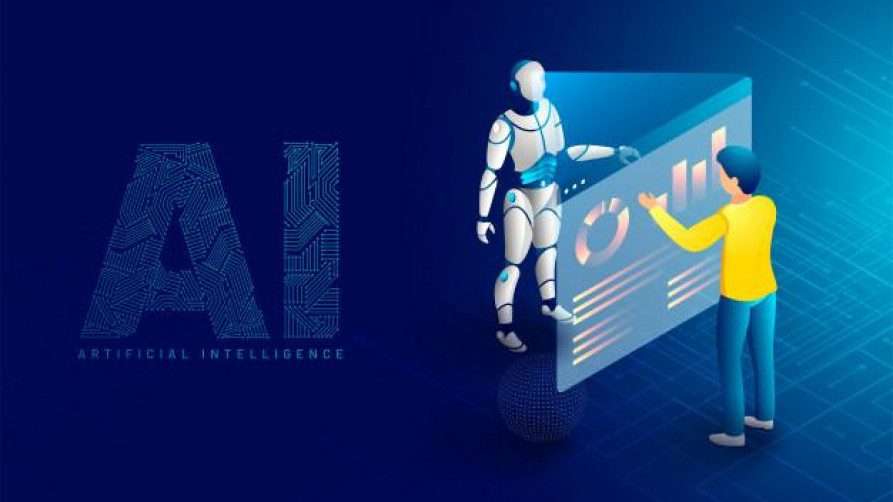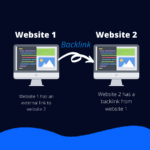Even though healthcare was the first industry to adopt technological advances, the industry has been experiencing crucial changes in the past several years. This comes as no surprise, since we are living in peculiar and difficult times. As a result, the vast majority of people are not being able to receive proper treatment and governments feel deprived. How should the healthcare industry deal with an everlasting workload and related challenges? That’s where telemedicine and artificial intelligence come in.

A hundred years ago, people found it impossible to believe that medical care could be delivered without visiting a doctor. But thanks to telemedicine, what used to be hardly imaginable has become a reality. One step for patients, one huge leap for humankind – that’s how telemedicine and artificial intelligence are revolutionizing healthcare.
What is telemedicine? Basically, it’s the process of delivering health care services from a distance by using communication and information technologies to diagnose, assess, and treat patients.
Our generation has adopted telemedicine remarkably fast and the growing demand is challenging technology to advance further every single second. Currently, a wide range of technologies are applied to help healthcare professionals provide a decent level of medical care to patients remotely. Artificial Intelligence plays a major role in attempts to overcome the challenges of health service delivery.
How is AI Used in Telemedicine?
Artificial Intelligence and telemedicine go hand in hand nowadays. The main objective behind Artificial Intelligence in telemedicine is making computers more efficient in tackling healthcare issues and enabling the doctors to consult patients using technological tools. There are numerous ways how artificial intelligence is used in telemedicine. Among them are:
- Remote Patient Monitoring or Telemonitoring – A method of healthcare delivery that uses patient data to track of an individual’s health condition and well-being, which enables healthcare providers to diagnose illnesses remotely and ensure transparent communication between doctors and patients.
- Health Information Technology (HIT) – Providing the ability to manage electronic data in healthcare systems, including e-prescriptions and electronic health records. HIT would be hard to implement without AI algorithms, which are used to retrieve and store medical data in hospitals.
New Models of Healthcare with AI
The unexpected spread of unknown viruses like COVID-19 enforces healthcare providers to come up with new, safer ways to cure people. Artificial intelligence plays a major role in this process. This technology offers us new models of medical care through a rapid process of natural language processing that brings us new ways to treat patients remotely. Right now, there are various virtual online assistants, chatbots, and other AI-based products on the global market.
Remote patient management is one of the most prominent examples of telemedicine. Because of the quarantine measures taken in many countries, the usual way of visiting a doctor has changed. Consequently, remote diagnosis and storage of patient records pervade our lives with more efficient health monitoring measures.
The Benefits of AI in Telemedicine
- Simplifying Hospital Visits – Even though telemedicine tech solutions promise to reduce hospital visits, sometimes a hospital visit does become necessary. In these cases, AI can help reduce waiting times for patients, and ensure that the patients are quickly attended to.
- Providing Better Diagnosis – Telemedicine has made remote diagnosis possible. Doctors can monitor, diagnose, and treat diseases remotely with the help of telemedicine.
- Recommending Treatments – AI algorithms can analyze a patient’s past medical records and suggest the best treatment option available. This significantly reduces the time doctors spend going through the medical history’s to prescribe treatment. AI can provide better treatment recommendations while requiring less human effort.
- Providing Better Healthcare to the Elderly – As telemedicine is usually associated with mobile devices, it can help track medications patients take and alert authorities in the case of an emergency.
- Preventing Doctor’s Burnout – Prolonged interactions with patients or spending a substantial amount of time on an electronic device can cause burnouts, which could affect work practices. While telemedicine is already helping healthcare providers cope with burnouts, AI can help reduce the health professional’s digital screen time.
Medical professionals can benefit hugely from adopting AI in telemedicine. It will help cut costs, provide better healthcare to individuals, and improve the work environment. Most importantly, will make healthcare available 24/7.
Keeping an eye on the latest industry-specific tech trends has always been our priority at Kepler Team. Contact us to discover how we apply Artificial Intelligence to boost telemedicine and make products that save people’s lives all over the world.




